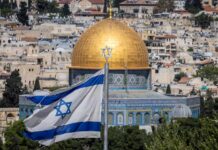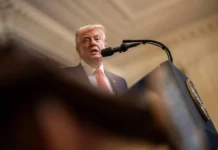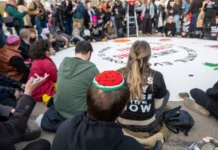More than 2,700 Hezbollah terrorists were wounded and at least nine were killed across Lebanon on Tuesday when their communication devices exploded, Lebanese Health Minister Firass Abiad confirmed.
Approximately 200 Hezbollah terrorists were in critical condition in 100 different hospitals, Beirut’s health minister announced about three hours after the explosions were first reported at 3.30 p.m. local time.
A Reuters journalist saw 10 terrorists bleeding from injuries in Beirut’s southern suburb of Dahiya, which is the main stronghold of Hezbollah. A security source told Qatar’s Al Jazeera that explosions occurred across Lebanon—not only in Beirut but also in the Beqaa Valley and the south.
Senior Hezbollah officials were said to have been wounded in the blasts. Iran’s ambassador to Lebanon, Mojtaba Amani, was also wounded in one of the explosions, Tehran’s semi-official Mehr outlet reported.
Footage shows a detonation inside a bag belonging to an unknown individual. Apparently, communication devices on Hezbollah members detonated wounding an unconfirmed number of fighters. pic.twitter.com/e9khfMDLNS
— Joe Truzman (@JoeTruzman) September 17, 2024
‘Causes of which are still unknown’
Unconfirmed reports in Arab media claimed explosions also occurred in Damascus, wounding at least dozens of Hezbollah terror operatives.
In its first official statement on the incident, Hezbollah announced that the pager explosions, “the causes of which are still unknown,” killed at least three of its members, while wounding a large number of others.
Shortly thereafter, the terrorist organization issued a statement that it held the Jewish state “fully responsible for this criminal aggression.”
Lebanese media affiliated with Hezbollah had attributed the incident to the Israel Defense Forces, claiming the mysterious blasts were caused by a hack of the terrorist group’s internal communications networks.
The Wall Street Journal said the pagers were part of a new shipment that the terror group received in recent days. A Hezbollah official suggested that “malware” may have caused the pagers to heat up and explode.
Another Hezbollah terrorist official in Lebanon cited by Reuters called the alleged computer hack by Israel the “biggest security breach so far.”
The IDF declined to comment to JNS on the incident, which came just hours after the Israeli Cabinet added the return of citizens displaced from their homes in the north to the country’s war goals, bringing a potential major confrontation with Hezbollah closer to reality.
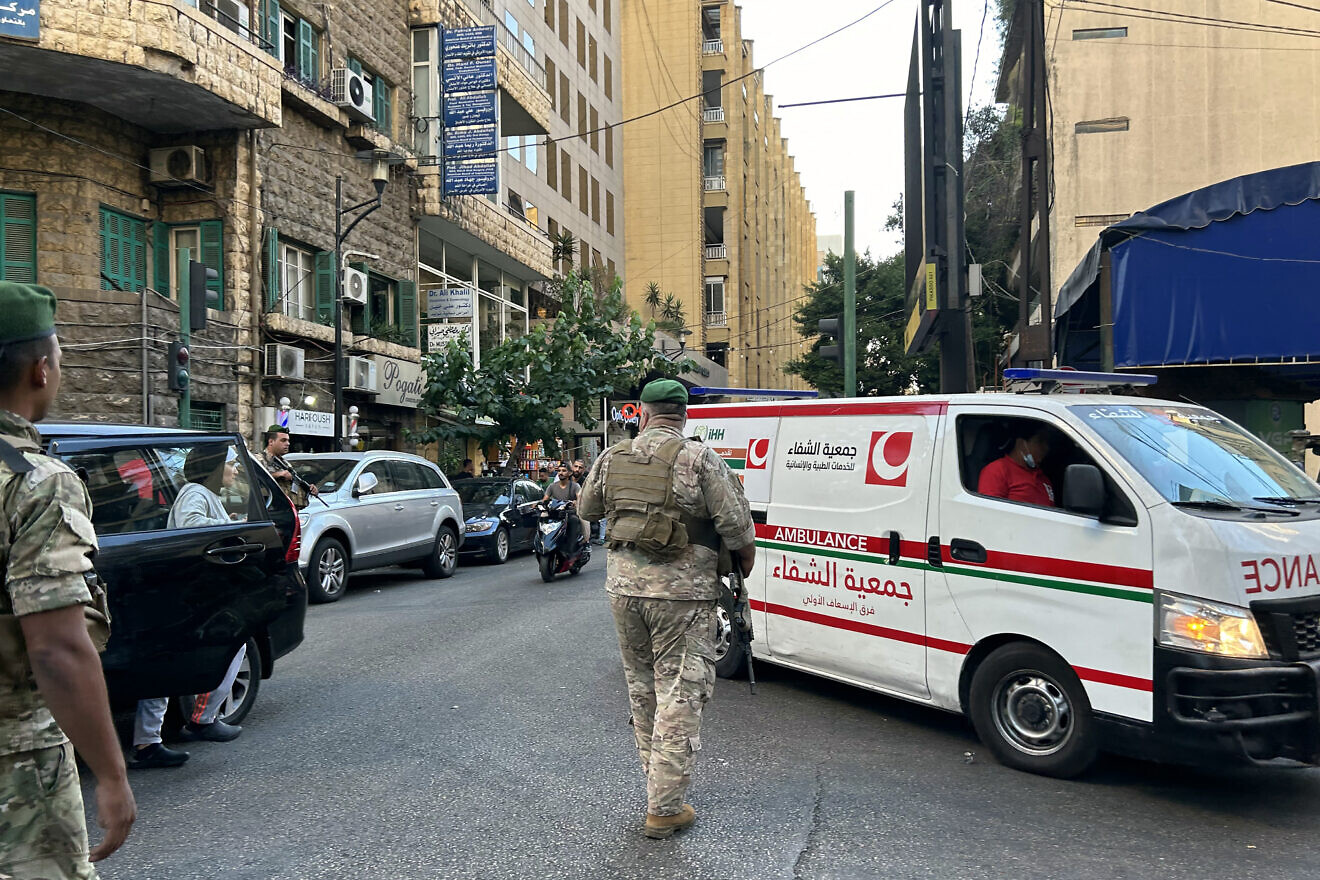
‘Final stages of implementation’
Earlier on Tuesday, the Israel Security Agency internal security service revealed it thwarted an attempt by Hezbollah to assassinate a former senior security official. According to the ISA, the attack had involved an explosive device and was intended to be carried out in the coming days.
The attack was prevented “in the final stages of implementation,” the ISA said. The targeted official has been updated by security forces, it noted, adding that additional details could not be provided “at this stage.”
Iran-backed Hezbollah has attacked Israel nearly daily since Oct. 8, firing thousands of rockets, missiles and drones. The attacks have so far killed more than 40 people and caused widespread damage. Tens of thousands of civilians remain internally displaced due to the violence.
According to Israeli media reports, the heads of the country’s security agencies, including Mossad chief David Barnea, convened on Tuesday afternoon for “frantic” talks regarding the threat posed by Hezbollah.
Israeli Prime Minister Benjamin Netanyahu barred ministers from giving interviews following the blasts, local reports said, adding that the premier was holding security talks in the ‘pit,’ the IDF’s underground command and control center in the Kirya military headquarters.
The Israel Defense Forces’ Home Front Command informed local authorities of a possible escalation on the border with Lebanon but stressed that there are currently no changes to instructions for citizens.
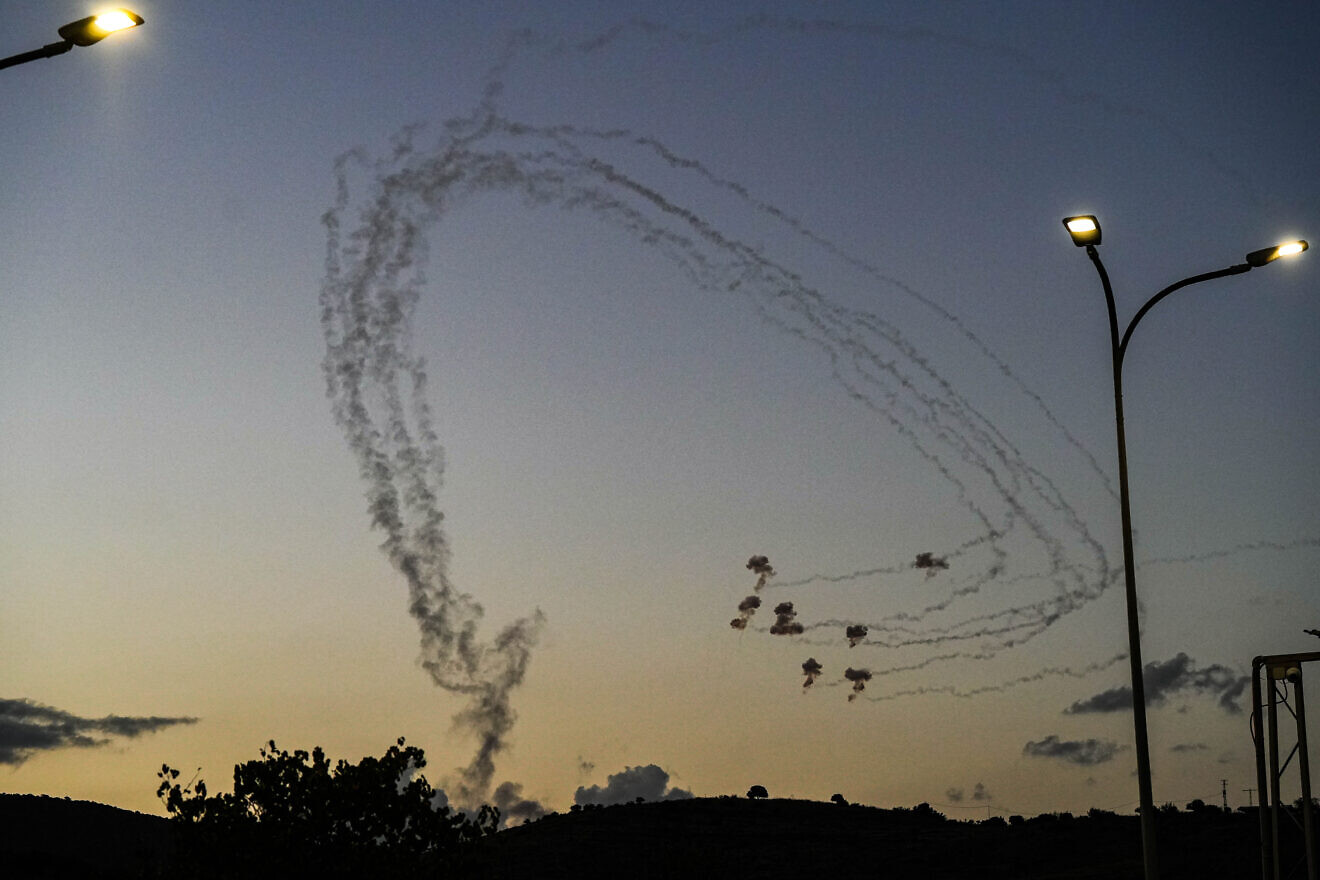
Netanyahu told visiting U.S. envoy Amos Hochstein on Monday that the thousands of Israelis displaced by Hezbollah’s attacks will not be able to return without military or diplomatic action against the terror group.
Netanyahu “made it very clear that it will not be possible to return our residents without a fundamental change in the security situation in the north,” according to a readout from the Israeli Prime Minister’s Office.
While Jerusalem “appreciates and respects” the Biden administration’s support, it will “ultimately do what is necessary to safeguard its security and return the residents of the north securely to their homes,” he told Hochstein during a meeting at IDF headquarters in central Tel Aviv.

